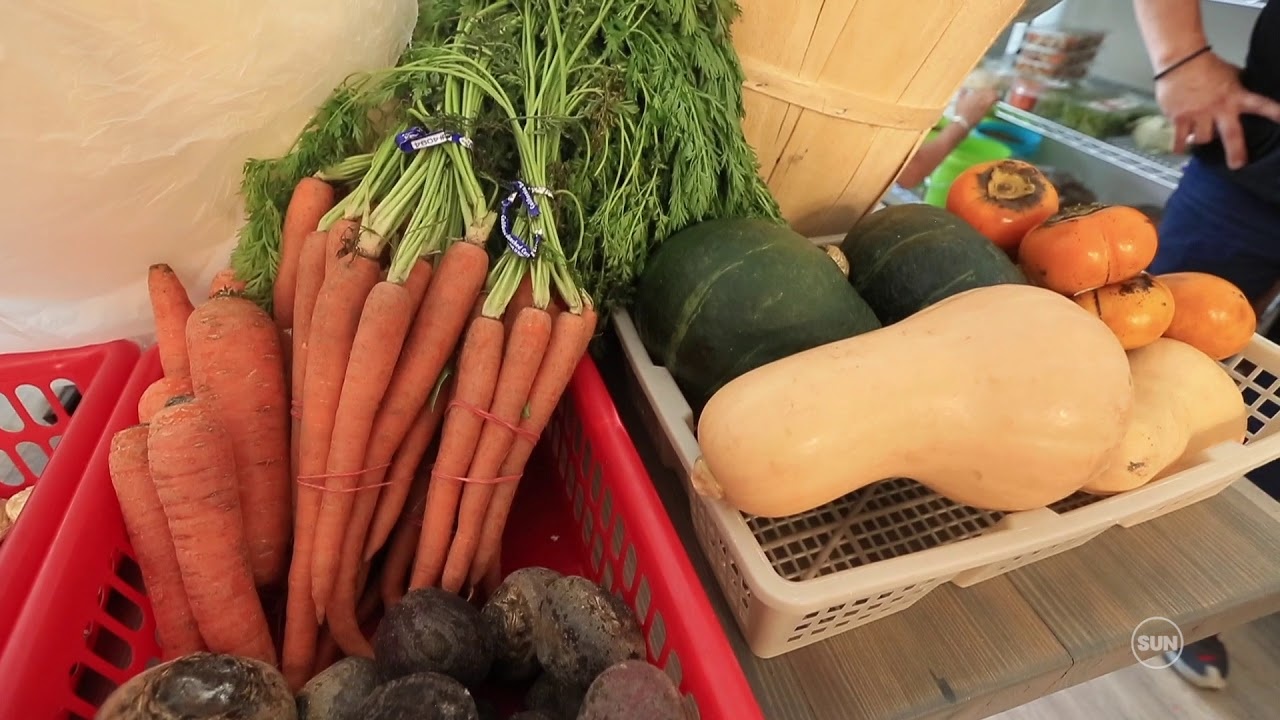
Toronto’s Pay-What-You-Can Grocery Store Feeds the Hungry, Not the Landfill

The Feed It Forward Grocery Store—Toronto’s first pay-what-you-can
food market, bakery and cafe—lets customers pay only what they can afford.
The store, located on 3324 Dundas St. West, opened earlier this month thanks to the efforts of chef Jagger Gordon and his team of volunteers.
The food is donated from the region’s grocery stores, farmers and bakeries, distributors and restaurants. The produce might be a little bruised or misshapen, and the pre-made foods might be near its sell-by date, but it’s perfectly edible. On Sunday, the store offered organic vegetables from Whole Foods, as the chef touted in a Facebook live post.
“It’s a simple procedure of taking those trucks that are destined for landfills and hijacking them and giving them to people in need,” Gordon told
The Canadian Press. “There’s more of a demand for food that is needed by Canadians than people know.”
The grocery store has diverted as much as 492 lbs. a day from landfills, Gordon estimated to the Guardian.
Gordon, who heads the not-for-profit Feed It Forward program to help food-insecure Canadians, also opened a pop-up soup bar for eight months last year with the same pay-what-you-can concept.
On his website, Gordon points out that 40 percent of all food produced in Canada ends up in landfills, a price tag of $31 billion every year. It’s an astonishing figure considering the 1 in 7 (or 4.9 million) people in the country who live in poverty.
“As a chef and caterer, I face this food-waste reality every day and in 2014 I reached a point where I could no longer stand by and let this happen with a clear conscience,” he writes. That same year, he launched the “Feed Families” frozen food program that provides qualifying families with meals donated from Toronto food producers.
Shoppers at the Feed it Forward Grocery Store may only take one day’s worth of food for their families and list the items they picked up. They are also asked to leave their name and contact information.
Gordon told the Guardian: “What I have noticed is people look into the baskets, try to calculate what it is and then say, ‘is this acceptable?’ And I just say, ‘are you kidding me? Whatever you can give is fine, but if you are unable to make a donation, we won’t let anyone go hungry.’ I wouldn’t even ask for a penny from anyone if I could, but it’s a social enterprise.”
At the end of the business day, any food that’s left over is taken to a nearby homeless shelter and community center, he told the publication.
You might wonder how such a concept could sustain itself financially. Gordon explained to the Canadian Press that the store’s operation costs are relatively low since food is donated and labor is volunteered, and he noted that his pay-what-you-can soup bar “balanced out” at the end.
He added that overhead costs can be supplemented from fundraisers, online donations and revenue from his catering business, Jagger Gordon Catering. He also plans to register the project as a charity, and pursue corporate backers and sponsorships.
[instagram https://www.instagram.com/p/BkEAPiqHl5z/?hl=en&tagged=feeditforward expand=1]

 233k
233k  41k
41k  Subscribe
Subscribe 